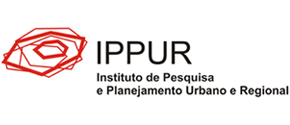Resumo em Inglês
Jeferson Cristiano TavaresDoutor em arquitetura e urbanismo pelo IAU-USP. Professor Doutor no Instituto de Arquitetura e Urbanismo (IAU-USP ), Docente no Curso de Engenharia Ambiental (EESC-USP); vencedor do IV Prêmio Ana Clara Torres Ribeiro da ANPUR em 2019 Regionalization and regions structuring the Brazilian territory in the XXI century
The aim is to problematize the recent scenario of regionalization of the Brazilian territory in the light of its trajectories with a focus on contemporary experiences. Taking into account socioeconomic, historical and cultural factors, the article is supported by the analysis of regional public plans, programs and policies of the last three decades. These sources are analyzed in the light of the European conceptual framework for cohesion; and North American of endogenous practices with the purpose of identifying the circulation of ideas that collaborated in their formulations. The method is based on the research of primary sources of urban and regional planning and its understanding from the theoretical debate on region and development in Brazil. Based on these approaches, it is possible to verify that the different regionalizations that occurred from the 1990s onwards can be interpreted as a fabric capable of structuring the territory through the orientation of state actions and investment decision-making. The conclusion highlights the conflicts and anachronisms of the practice of regionalization in Brazil, distinguishing its different affiliations and results. But, it also proposes an epistemological investigation for the debate agenda on urban and regional planning.
Resumo em Português - Texto
Download PDF
Voltar



